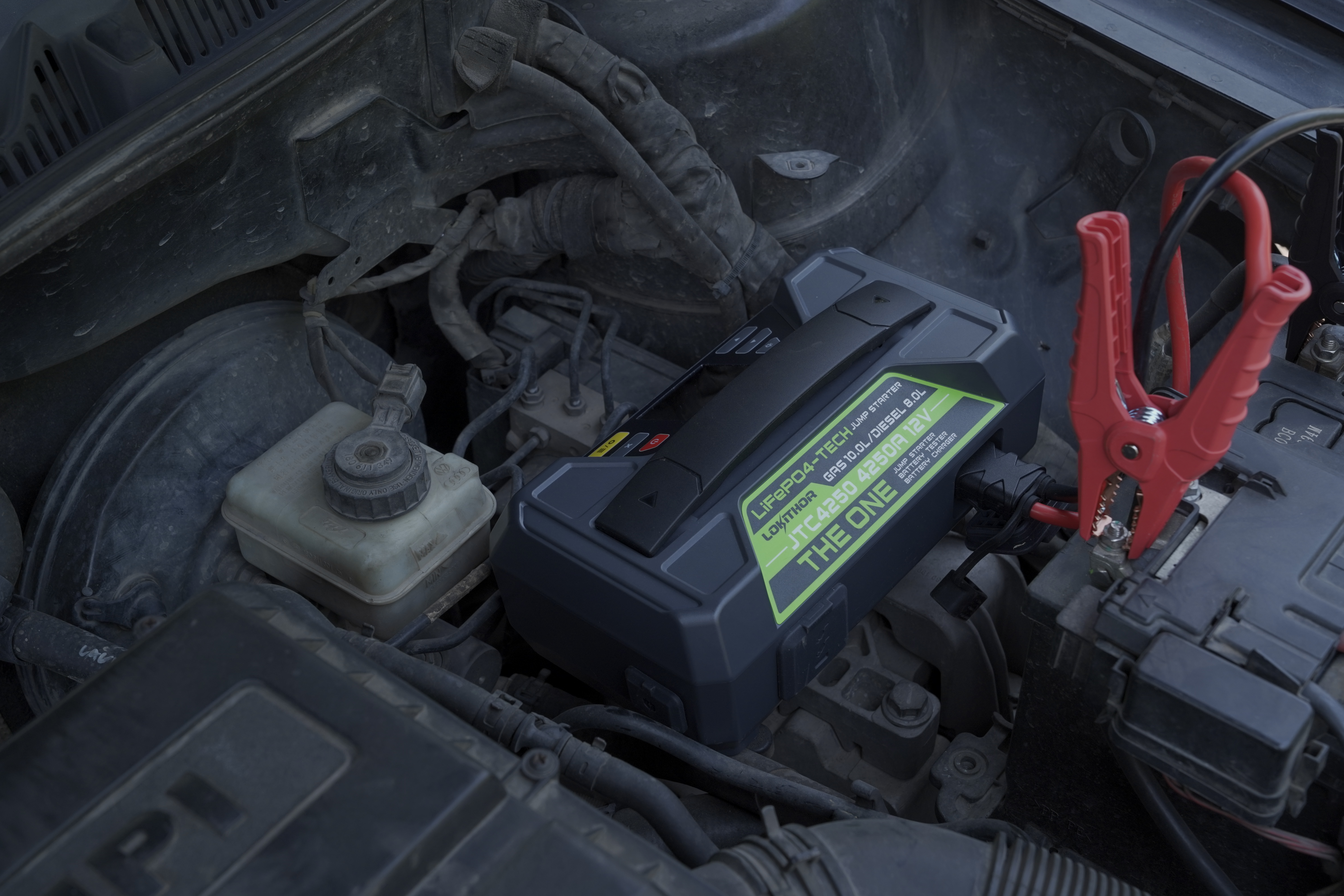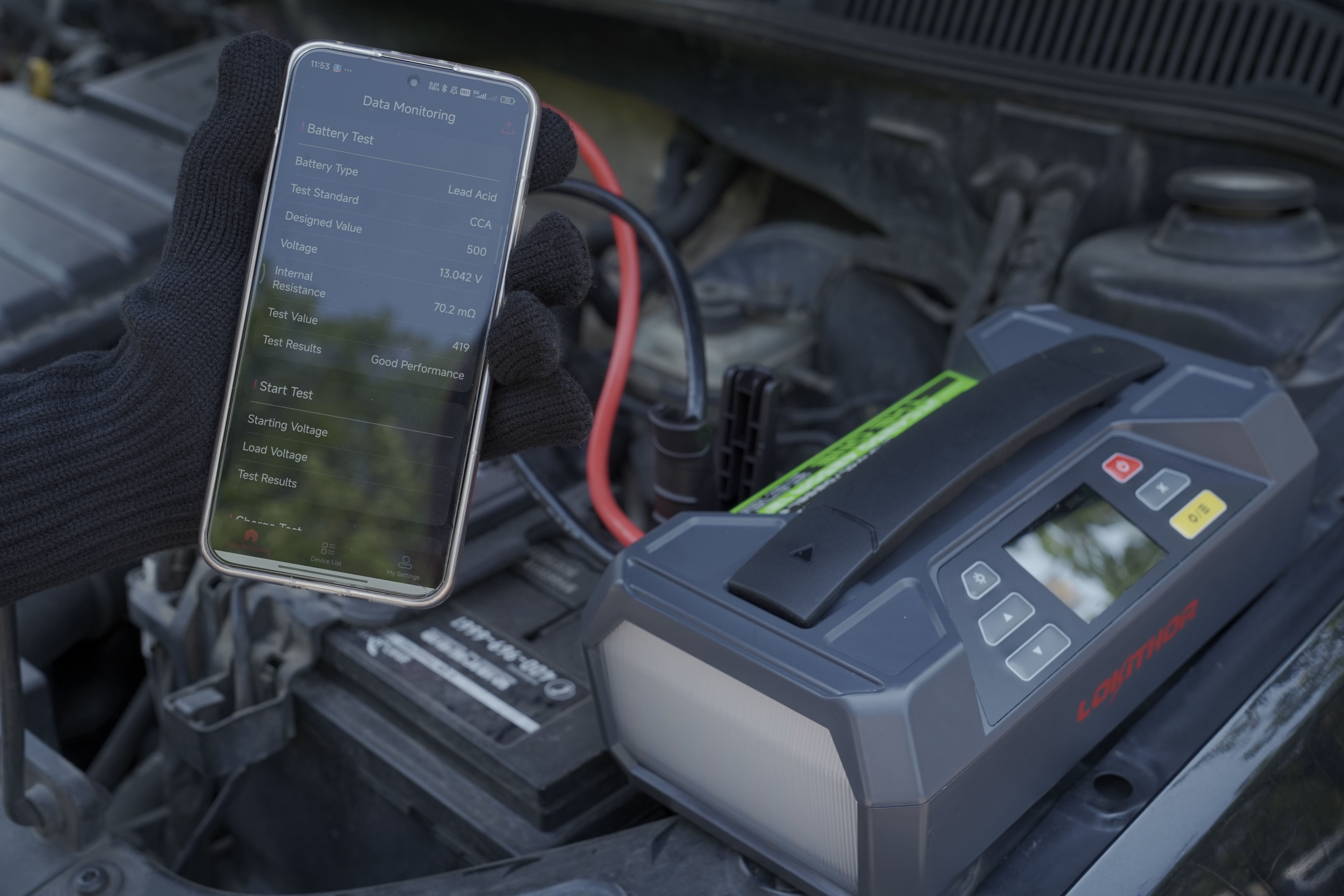 Release time: Apr 24, 2025
Release time: Apr 24, 2025
Damage to Electronic Components
When a car battery is connected in reverse, current flows backward through the circuitry, potentially short‑circuiting or destroying semiconductor parts (diodes, transistors) in the ECU, sensors, audio system, etc. Repairs to the ECU alone can be very costly and may also damage linked systems like the ABS module or dashboard circuitry.
Battery Self‑Damage
In a lead‑acid battery, reverse polarity can trigger abnormal chemical reactions in the plates, causing the electrolyte to overheat, the case to bulge or leak, and in extreme cases, the battery may even explode.
Blown Fuses
Some circuits include fuses that blow under excessive reverse current, but not every circuit is protected. If the fuse doesn’t blow in time, downstream components remain at risk.
Alternator and Starter Motor Damage
Alternator: Reverse connection can burn out the diodes in the rectifier, rendering the alternator unable to charge.
Starter Motor: Reverse current can overheat the windings or mechanically seize the motor (though reverse rotation is unlikely).
Overheated Wiring & Fire Hazard
Short circuits may melt wire insulation, igniting nearby flammable materials.
Vehicle Won’t Start
Even if the system isn’t completely destroyed, the car may refuse to crank or its electronics may go offline.

Anti‑Reversal Protection Solutions
Diode Protection Circuit: Install a high‑current rectifier diode (e.g. Schottky) ahead of critical circuits to block reverse current—note it incurs a 0.5–1 V voltage drop.
Self‑Resetting Fuses (PPTC): These trip instantly under reverse current and self‑reset after the fault clears, ideal for sensitive electronics.
Mechanical Keying: Some battery terminals use asymmetric shapes (e.g. tapered positive post/flat negative post) to physically prevent misconnection.
Emergency Procedure
Check the battery for swelling or leakage—keep away from open flames.
Before replacing any blown fuses, use a multimeter to verify the circuit is no longer shorted.
Cut Power Immediately: Disconnect the battery or external power within 10 seconds of noticing a reverse connection.
Safety Inspection:
Seek Professional Help: If the vehicle’s electronics fail or you smell burning, do not attempt repairs yourself—call for a tow and qualified service.
Standardized Connection Process
Polarity Check: Always attach the red clamp to the positive (+) terminal and the black clamp to the negative (–) or chassis ground.
Two‑Person Procedure: One person handles the cable sequence (positive first, then negative), while the other verifies correct polarity.
Upgraded Tools
Use smart jump starters with built‑in reverse‑polarity alarms and protection (e.g. the JTC4250 with auto‑cutoff on mis‑polarity).
Install aftermarket anti‑reverse modules on older vehicles.

Reversing battery polarity is no trivial “what if” exercise—it can destroy electronic modules, ruin your vehicle, or even cause personal injury. Modern electronics’ low voltage tolerance combined with a car battery’s high energy output makes a reverse‑polarity mistake exponentially more destructive. Always follow proper procedures and consider installing proactive protection on high‑value vehicles to minimize risk.
Warning: If you lack electrical expertise, never attempt to fix a battery misconnection yourself—a single mistake can cost far more than professional repair.
Add:290 Lindbergh Ave.Livermore.CA 94551 (USA)
Ottostr. 11. 41352 Korschenbroich. Germany (EU)
TEL:+1-925-364-7166 (USA)
+49-(0)218-25700755 (EU)